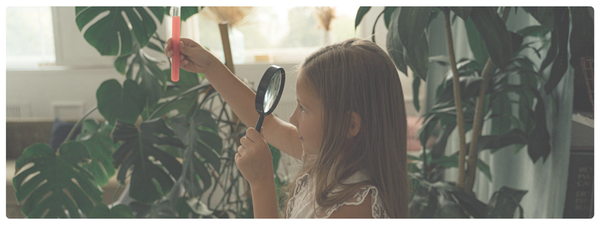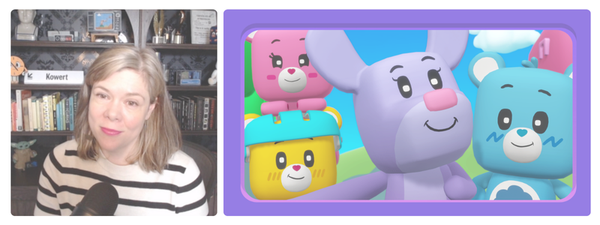Why does screen time guilt hit so hard?
We’ve all done it. Handed over the iPad so we could make a phone call, finish dinner, or just have five minutes to breathe (or go potty).
Almost immediately, the guilt creeps in.
Should I have read them a book instead? Should I have dropped everything to play?
This distinct type of parental guilt (“mom guilt” is a term that's stuck out previously, but this truly applies to dads and other caregivers, too) is ever more common as technology makes its way into every part of our lives as parents. Parents are more stressed out than ever before, yet it sometimes seems like every type of relief we seek makes us feel like bad parents (or at least, a parent making a weak choice — even if that’s not the case at all!)
Screens are often treated like treats, or worse, like a threat to our kids’ core development. Often, video games are given outsized blame for negative behaviors, yet not credit for enforcing good behaviors.
Nurture is a kids’ app that develops Life Readiness skills such as creativity, curiosity, and critical thinking. All the more important in the age of AI, they're developed through fun, interactive, story-driven adventures. Nurture Academy — that’s where you are right now! — is for parents learning what it takes to raise smart, happy, and resilient kids in our increasingly digital world. We’re glad you’re here!
Read on, then discover how Nurture works or get the app.
We are conditioned to see them as a shortcut, a cop-out, a fallback we’re “not supposed” to need. But what if the problem isn’t actually kids’ screen time, but the guilt we carry about screen time?
I’ve been researching the impacts of screen use and digital play on kids for a long time, so take it from me: screens are tools — not treats, and not threats to our kids’ upbringing.
Here’s the truth: Screens are tools. Not the whole toolbox, but an essential part of it. And if we approach them with intention, why should they come with guilt?
In order to break the habit of guilt-tripping ourselves when we reach for this digital parenting tool, let’s break down the concept of screen time “mom” guilt itself:
- Why is screen time guilt so common?
- What does screen time guilt do to our parent/child relationships?
- How can we move forward with less shame and more confidence?
Why we feel guilty about screen time — even when it’s helping
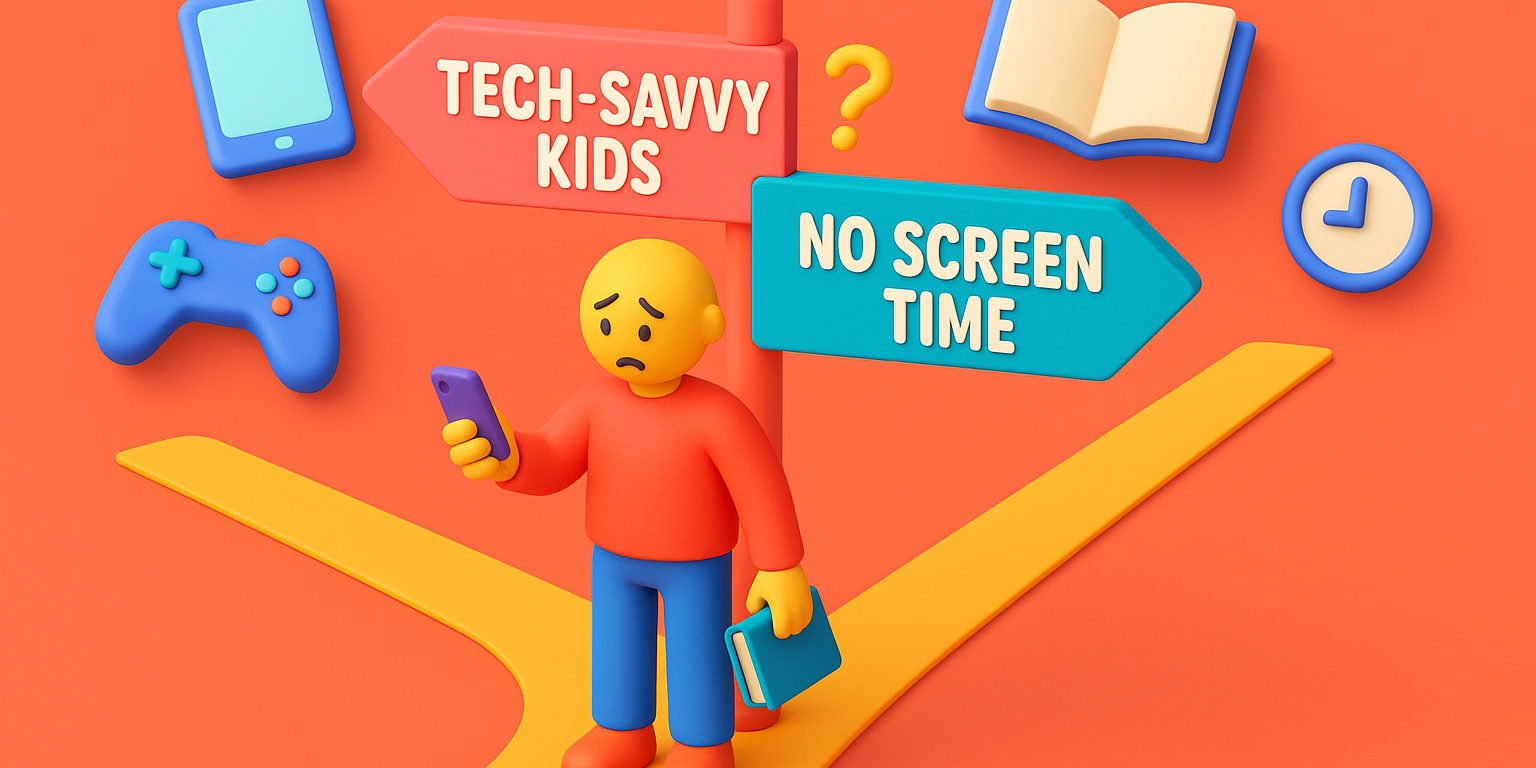
Modern parents are stuck in a double bind. We are simultaneously told to:
- Raise tech-savvy kids who can thrive in a digital world
- Strictly limit their screen time
It’s not just “expert” guidance feeding the tension. It’s the Instagram-perfect portrayals of 1950s-style parenting with homemade meals, endless crafts, and 24/7 presence.
Yet even in the 1950s — actually, well into the ‘90s, I’d say — kids were sent outside until the streetlights came on. What went on out there? Did those parents ever feel much guilt?
Today, when we use screens for a moment of peace, we suddenly feel like we’ve failed to be fully present, actively engaged, and a perfect parent. Then we negatively impact our own self-image, stress ourselves out, second-guess every decision, and — wasn’t this supposed to be a moment of peace?!
That feeling of disconnection — not just from the kids, but from our own parenting instincts — is where the guilt hides.
If screen time is our only tool or it’s used without intention, then, yes, that’s worth examining. But the guilt and shame shouldn’t pop up as soon as the screen loads.
To paraphrase Dr. Robin Nabi, screen time guilt is an uncomfortable feeling, but it can sometimes be a useful signal. The trick is finding a balance between reducing screen-time stress that can disrupt your relationships and trading the screen for a different tool.
There’s actually a lot of research on the subject of parental screen time guilt, from Dr. Nabi and others.
What the research really says about screen time and guilt
Multiple large-scale studies show that the amount of screen time kids get isn’t a reliable predictor of their well-being. What is a strong predictor? How their caregivers feel about it.
Dr. Nabi’s report from Greater Good Science Center explains that over 70% of parents feel guilty about screens. That guilt leads to reactive, inconsistent, or overly rigid rules. This, in turn, can end up disrupting family harmony and reducing opportunities for connection.
A 2024 study by Nabi and her colleagues found that parental guilt, not screen use itself, correlated with increased stress and lower satisfaction in the parent-child relationship. In other words, the emotional toll of guilt can strain our bond with our kids more than the screen time ever could.
Catching the trend here?
Another study taps into my own beloved screen-time advice: it’s about quality, not quantity.
As Dr. Rebecca Dore explains, screen time guilt can end up doing more damage than the screens themselves. When we fixate on time over quality, or treat screens like forbidden fruit, we create unnecessary tension and restrict the role of technology as a tool in the grand scheme of our lives.
In 2025, researchers discovered that parental stress, perceived competence, and guilt can actually make parents more depressed. They discovered a vicious cycle:
- Parental stress increases depression
- Depression leads to feelings of incompetence and guilt
- Incompetence and guilt feelings exacerbate depressive feelings
- Depression increases stress levels
All this, just over some screen time?
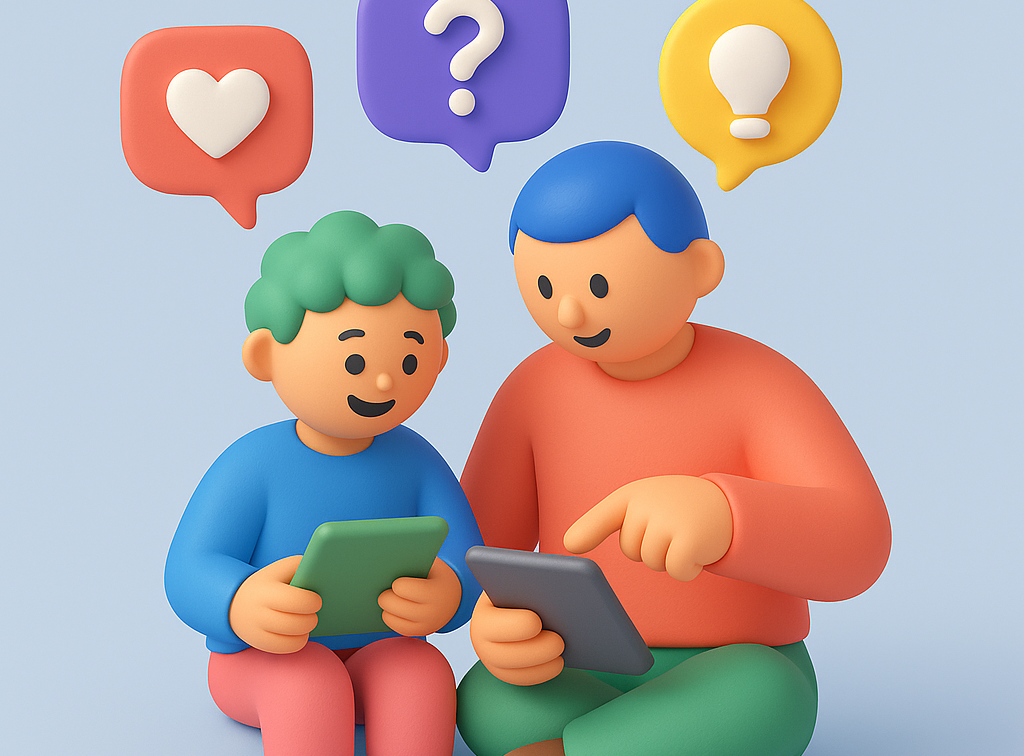
It’s the emotional aftermath of the guilt and shame that can lead to overcorrection, either emotionally or in relation to screen time. Then parents might reduce screen time, giving them even less time to breathe, or pass along the stress to the kids — who now themselves could feel guilty about enjoying a show or game on their device.
Over time, the parent-child connection itself becomes more stressed. Screen, guilt, shame, over-correction — another vicious cycle.
When guilt backfires: Controlling rules, fractured connection
Research also shows that controlling parenting styles — especially when driven by guilt — can backfire. One international study found that parents who use more rigid screen time rules actually report more screen time use and perceive more overuse. When it comes to an overall screen time approach, flexibility is key.
When a kid thinks it’s a treat, they might want it more than before. Same idea for the parent, who thinks it’s being overused.
Guilt can push us to overcorrect: banning screens completely, setting impossible rules, or shaming ourselves when we “slip.” That rigidity can lead to power struggles, secrecy, and disconnection. It will just make everyone involved more irritable, too.
Picture this: You skip the tablet, but now you’re trying to cook dinner with a child tugging at your leg. Instead of a calm meal and time to connect afterward, you’re exhausted, annoyed, and left with a bowl of overcooked pasta.
The guilt over screen time led to a choice that didn’t serve anyone (certainly not your palette!).
I’m not saying you can or will avoid the guilt. But you can harness the guilt. Know the guilt — understand it and use it as a signal, not a directive (or a depressive).
It’s not just how much screen time your child gets, it’s how you manage it, and how you feel about it.
A better way: Using guilt as a guide, not a punishment
Guilt isn’t always bad. It can be a helpful signal. Our bodies use emotions to give us all sorts of signals (ever get hangry?). But it’s only helpful if we understand where it’s coming from.
Ask yourself:
- Was the guilt triggered by your own values, or someone else’s expectations?
- Were you trying to meet your child’s needs — or your own (like needing a minute to breathe)?
- What might feel better next time?
As Dr. Jacqueline Nesi notes, “Guilt is a moral emotion — it arises when we think we’ve done something wrong. But sometimes, it misfires.”
If you’re feeling it, take a moment to reflect. Maybe you are using screens more than you’d like. Or maybe you’re doing just fine, but holding yourself to an impossible standard. Digital parenting is all about balance.
Do you need to make an immediate (over)correction, a slight shift, or just do things differently next time? OR — and here’s the hardest one — do you just need to give yourself a break and let it go?
Practical tips to reduce guilt and reconnect with your child
You don’t need to overhaul everything. Small shifts can make a big difference:
- Co-view or co-play: Even if you’re busy, take a moment to ask what they’re watching or playing. Stay semi-engaged.
- Focus on quality: Prioritize interactive, creative, or age-appropriate content.
- Build a flexible routine: Make space for screens, but also for tech breaks, outdoor time, and offline play.
- Model balance: Let your child see you put your phone away or take breaks, too.
- Practice self-compassion: No one gets it perfect. If you’re feeling disconnected, use that as a cue to check in, not beat yourself up.
- Create moments of reconnection: After screen time, ask your child what they did or learned. Use it as a bridge, not a wall.
Remember that the best parent is a happy parent, one who can see and feel clearly and give their kids the love, attention, and tools they deserve.
Trading guilt for goals: What screen time can achieve
Let’s reframe the goal. It’s not about zero screen time. It’s about using screens in ways that support your family’s needs, values, and rhythms.
Yes, guilt is common, but it’s not always helpful. And it certainly shouldn’t dictate how you feel about yourself as a parent.
You’re doing your best! Your connection with your child isn’t measured in screen-free minutes. It’s built over time, through intention, curiosity, and compassion.
You might find it even easier to work through the guilt by better understanding the real impacts of screen time on children (FAQ) and finding some age-appropriate video games you can turn to when the situation calls for some screen time.


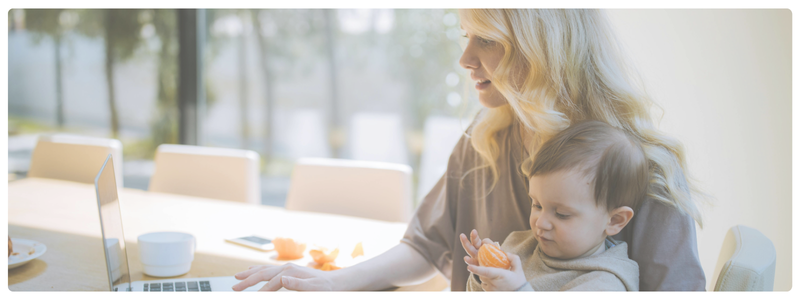
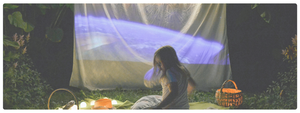

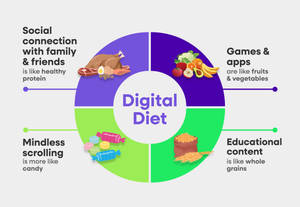
 Copy Link
Copy Link
 Share
to X
Share
to X
 Share
to Facebook
Share
to Facebook
 Share
to LinkedIn
Share
to LinkedIn
 Share
on Email
Share
on Email

